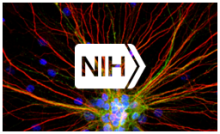
Recently, members of the Multi-Council Working Group (MCWG) and Neuroethics Working Group (NEWG) met virtually to discuss ongoing efforts to promote and enhance diversity, equity, and inclusion in neuroscience, and bridging basic research with human therapeutics.
On May 20, 2021, the Multi-Council Working Group (MCWG) and Neuroethics Working Group (NEWG) met to discuss activities to promote and enhance diversity, equity, and inclusion in neuroscience. The MCWG coordinates efforts across the NIH and provides input on the long-term scientific vision of BRAIN, and the NEWG ensures that ethics is fully integrated into BRAIN as new tools and technologies emerge.
Dr. John Ngai, Director of the NIH BRAIN Initiative, kicked off the meeting by introducing Dr. Andrea Beckel-Mitchener as the Deputy Director of the NIH BRAIN Initiative. Dr. Ngai also mentioned the new BRAIN Director’s Corner webpage as a way to offer his distinct vision of the Initiative by directly communicating with the community. Then, he reminded the group of the BRAIN 2.0 transformative projects and associated Armamentarium-related funding opportunities, as well as the recent BRAIN Connectivity Workshop Series. He also encouraged everyone to attend the annual BRAIN Initiative Investigators meeting, which will take place virtually from June 15-17, 2021.
Next, Drs. Devon Crawford (NINDS), Andrea Beckel-Mitchener (NIMH), and Ryan Richardson (NINDS) gave a presentation on ongoing and future efforts to promote scientific excellence in BRAIN through enhancing diversity, equity, and inclusion. They overviewed results from an analysis of recent BRAIN Initiative investigator demographics(pdf, 1007 KB). Further, they highlighted current BRAIN diversity activities, such as funding mechanisms to enhance workforce development, a recent funding opportunity open to minority-serving institutions and institutions in IDeA-eligible states (RFA-MH-180), and a new BRAIN grant application requirement dubbed the Plan for Enhancing Diverse Perspectives (PEDP). The PEDP requires applicants to submit a plan to enhance inclusivity in their proposed research project and applies to most BRAIN research grant notices of funding opportunities (NOFOs) published in April 2021 and beyond. The MCWG and NEWG discussed the importance of setting target goals, measuring and sharing outcomes, ensuring diverse reviewer demographics, and other considerations.
Dr. Kafui Dzirasa (Duke University), an MCWG member, presented an overview of his research on elucidating the neural basis of behaviors and cognitive processes implicated in mental illness, as well as the translational potential of findings from preclinical rodent studies. In addition to his tool development work, Dr. Dzirasa highlighted a BRAIN-funded project focused on monitoring neural activity in mice at the mesoscale level and using computational methods to link localized neural data to brain-wide networks and behavior. He explained how this approach can be applied across species and ultimately inform human therapeutics. Further, he noted the importance of the generalizability of neuroscience tools across sex and genomic architectures or ancestries. This led to a discussion on ensuring diverse research participant recruitment, brain tissue donation, and sample collection in BRAIN-funded projects.
Lastly, Henry (Hank) T. Greely, JD, Director of Law and Biosciences at Stanford University and co-chair of the NEWG, provided an update on NEWG activities. Dr. Greely mentioned the NEWG’s interest in hosting a workshop on data sharing and privacy, and addressing barriers to diverse human sample collection. He also recapped relevant neuroethics topics from the National Academies of Sciences, Engineering, and Medicine report on the Ethical, Legal, and Regulatory Issues Associated with Neural Chimeras and Organoids. The group discussed defining and studying the neural basis of consciousness and pain perception. Finally, Winston Chiong (UCSF) summarized a workshop on post-trial obligations, organized by the University of Washington and supported by a BRAIN neuroethics administrative supplement (NOT-MH-18-034). For more details on meeting discussions, please read the meeting summary(pdf, 156 KB) and archived videocast.
The next NEWG and MCWG meetings will take place on August 19 and 20, 2021, respectively.
